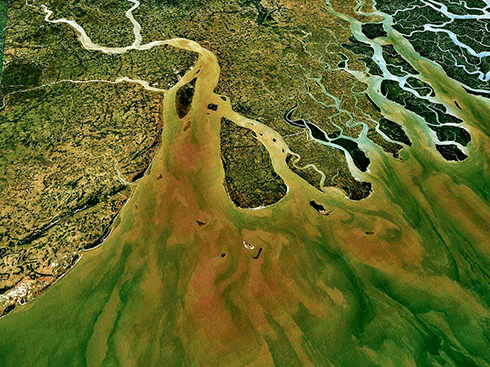
|
Published: 19 May 2014
Study will help Bangladesh adapt to a changing climate
A CSIRO study has revealed the impacts of population growth and climate change on water resources and food security in Bangladesh – widely considered the nation most vulnerable to increased flooding and sea-level rise associated with global warming.
CSIRO’s Dr Mac Kirby recently presented the results of a 3-year study, the Bangladesh Integrated Water Resources Assessment, at a workshop in Dhaka, the nation’s capital.
The study, led by CSIRO, found that a growing population, combined with climate change, poses huge challenges for water resources management and food security in Bangladesh.
‘Bangladesh already suffers from extreme drought and devastating flooding; climate change is expected to exacerbate these issues,’ Dr Kirby said.
‘This study outlines greater risks to water quality, and unsustainable use of groundwater. The declining area of land available for agriculture due to seawater intrusion may pose the greatest threat to future food security.’
The study offers some options for Bangladesh to address the issues into the future, but also notes the enormous efforts already underway in the country to deal with water management.
‘Bangladesh has attained rice self sufficiency by developing its water resources, and also improved its flood defences, in recent years,’ continued Dr Kirby.
‘Continued economic growth and investment in water resources will help the country overcome the future challenges. Increasing wealth and employment will reduce the vulnerability of the poor to water related hazards like floods.’
Present at the workshop were the Australian High Commissioner, Mr Greg Wilcock, the Bangladeshi Minister and State Minister for Water Resources, heads of key agencies in the Bangladeshi water and agricultural sectors, academics, consultants, and representatives of the FAO, the Asian Development Bank, and the German Society for International Cooperation.
The Bangladesh Integrated Water Resources Assessment was funded by the Department of Foreign Affairs and Trade (DFAT) Australian Aid and involved several local partners in Bangladesh. The workshop was organised by the Bangladesh Institute of Water Modelling and CSIRO in collaboration with other local project partners.
Source: CSIRO




